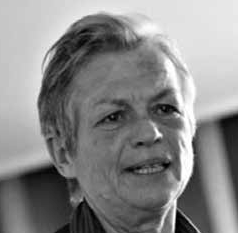Asserting rights is not enough – what should we be fighting for? Jan Walmsley finds some inspired answers through creative, unconventional performances in mainstream arenas
I knew what I was fighting for once. In the mid 1980s, a time of fierce optimism, we knew what was right. Once we had closed the institutions and substituted an ordinary life, all would be well.
The certainty that state hostels, day centres and professional care were the solution was giving way to a more abstract clamour for rights. There was faith that self-advocates would forge a path, the need for support would somehow wither away and, after a period of dependence, people would manage their own affairs.
Looking back, it all seems idealistic – even naive – but this vision of the future provided inspiration and optimism.
While I’m sure that vision still inspires some, asserting rights can feel somewhat hollow when there are no means of upholding them in the face of government indifference or outright hostility. So, where else to look for inspiration?
Reflecting the articles about the arts in the last issue of Community Living, it is in the arts field where I’ve had my most positive and exciting encounters this year.
The first was as examiner of a wonderful PhD by Jade French (2018), a visiting research fellow at the University of Leeds. Her thesis was based on supporting five learning disabled people to curate an art installation at Liverpool’s Bluecoat Gallery – an amazing process and achievement.
The second was a musical performance in Watford by Electric Umbrella (electricumbrella.co.uk), a large, very diverse group of people with learning disabilities. It was probably the most inclusive event I’ve ever experienced. The music was exuberant and joyful, and everyone had a part if they wanted one.
The third was Access All Areas’ professional and challenging performance Madhouse Re: Exit (review, page 18).
I reflected on what these three had in common. Could they help me to put into words something to fight for?
Tracing the source
First, none sprang from service land. There was not a psychiatrist, psychologist, antipsychotic drug or support worker in sight. Those who funded, orchestrated and inspired the events were not people with learning disabilities or experts in the field. All three were led by individuals passionate about art, music or theatre who have found ways to share their passion with people with learning disabilities.
Second, all three gave “valued social roles” to those who took part. It is admirable to be a musician, perform in a professional theatre or curate an art installation in a prestigious public gallery. The events took place in mainstream not segregated settings.
What is so refreshing is that these roles were performed in far from conventional ways. I went round Madhouse with members of Blue Diamond, a group of people with Down’s syndrome who had come from Dublin to London to see it. Their response was visceral, energetic and energising. They talked back to the performers and cheered – they were doing it differently.
An audience member said to me afterwards: “I have no experience with disability, never spent time with disabled people – this makes me want to do it a lot more.”
Finally, they were fun, thought provoking, emotional and exciting in ways that mainstream art events often are not.
So what does this say about what I should be fighting for? To resist oppression, there are three broad strategies. One is to withdraw from society into a separate culture, such as L’Arche or Steiner villages. These communities suit some people well, and show alternative ways of living, defying pessimists and cynics and inspiring others.
The second is integration into the world as it is – broadly, the social inclusion approach. It requires a person to change to fit in as far as possible, to “pass” as normal and to adopt valued social roles. It is the most favoured current route – consider the emphasis on paid employment in Valuing People Now.
Finally, there is entering the world to change it – the most difficult as the world has to reconsider and adapt. The three events show attempts to do this by challenging what we think of as art and who does it; they provoke us to think differently about being an audience member or indeed a performer, and what it is to have a valued social role. Above all, they celebrate diversity by making it real.
It would be a better world if such experiences were common – and not just for people with learning disabilities. That has to be worth fighting for.
French J (2018) Art as Advocacy. Exploring Curatorial Practice by Learning Disabled Artists as a Tool for Self-Advocacy. www.fine-art.leeds.ac.uk/people/jade-french/

